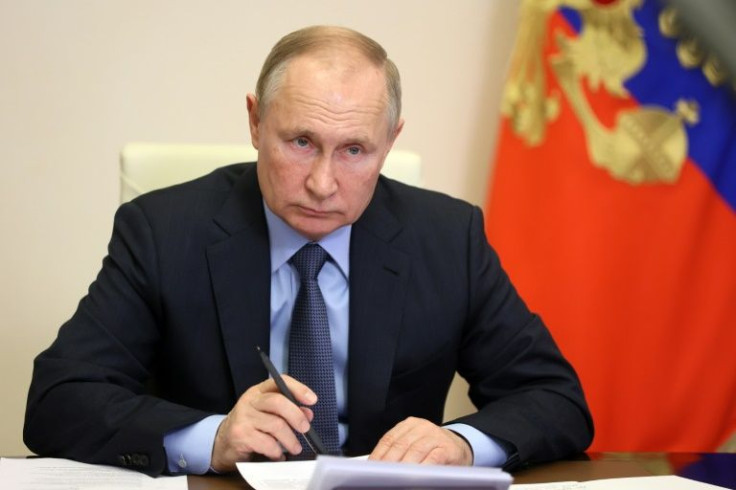Putin's Outreach To Islamic World Catches NATO Napping

As tension increases with the West over Ukraine and on NATO’s eastward expansion, Russian President Vladimir Putin proved pro-Islam and got a shot in the arm.
Islamic scholars and political leaders have lauded the longest-serving Russian leader’s stance on denouncing drawing satirical cartoons of Prophet Mohammad as a violation of the freedom of religion at his annual news conference in Moscow Dec. 24.
At the news conference, Putin asked, "What are insults against the Prophet Muhammad? Is this creative freedom? I think not."
Putin's comments come as France, a NATO member, started a drive to "reform" Islam and bring it under state control and its President Emmanuel Macron declared support for drawing and publishing of satirical caricatures and cartoons of Prophet Mohammed one year ago.
The French decision led to a campaign in the Arab world to boycott French products and businesses.
Putin's conciliatory approach towards Islam and the Muslim world was directed against the US, the numero uno in the NATO pact, which is pitched in a protracted battle with fundamentalist Islam globally under its War on Terror campaign that has claimed lives of many moderate Muslims as ''collateral damage.''
At the Dec. 24 conference, Putin flayed publication of sketches of Prophet Mohammad in French magazine Charlie Hebdo, which put Islam in a collision course with the French government and its society.
Islamic scholars and religious bodies, who hold sway among Muslims worldwide, lauded Putin "for respecting the sentiments of the Muslims"; and echoing the general view Pakistan Prime Minister Imran Khan thanked Putin for helping to curb "Islamophobia" in non-Muslim countries.
Putin seized religion to score a point over the US-led western alliance as Moscow is yet to consider NATO's invitation for talks Jan 12.
"We have already received this (NATO) offer, and we are considering it," the Russian foreign ministry said Dec. 26.
The Russian president said if talks fail, he would consider "proposals that our military experts submit to me."
NATO invited Russia's for talks after Moscow Dec 17 released draft agreements on security guarantees and asked the military alliance to end its eastward expansion to include Ukraine, Georgia Armenia, and Azerbaijan, encircling Russia.
Since the end of the Cold War NATO has doubled in size and has 28 nations as members on the other side of the Atlantic.
Russia is seeking a security zone around its borders to include all the former USSR where NATO bases are banned.
Russians have sought a legally binding guarantee from NATO that Ukraine, where it has stationed 120,000, troops, will not be handpicked as a member of NATO, which has previously refused to give in, stating that membership is open to any qualifying country.
The Russian arms built up has resulted in international concerns that it might be planning an invasion as it did with Ukraine's Crimean Peninsula in 2014.
The EU and the US have threatened severe backlash if Ukraine, which Putin sees as historically Russian but slipping rapidly out of his grasp, is attacked.
But in the war of perception, Putin now stands tall in the Islamic world which is not at ease with drawing satirical images of its supreme prophet.





